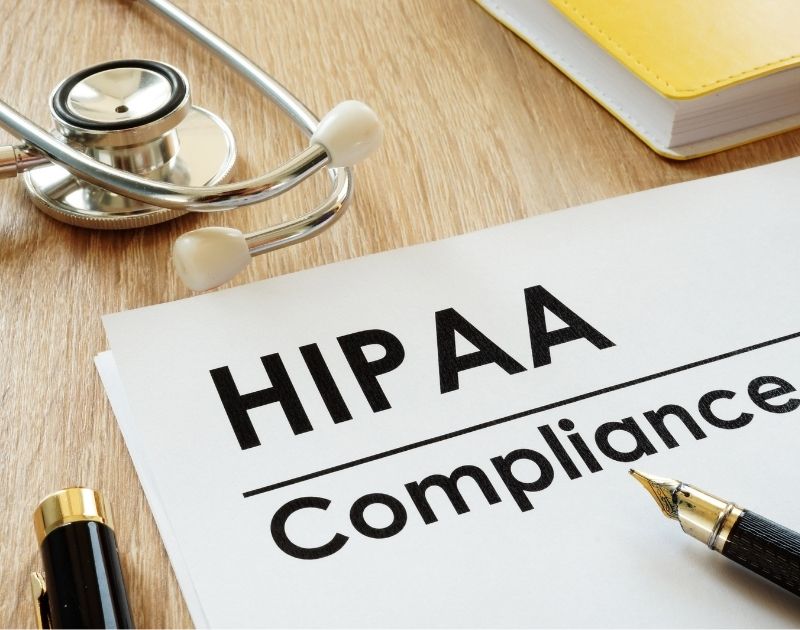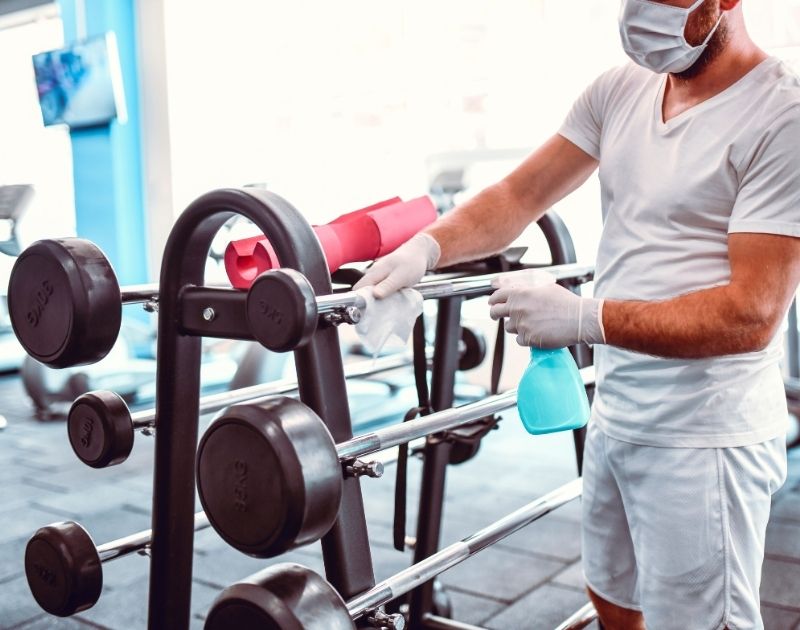Maintaining a clean medical environment isn’t just about appearances or patient comfort—it’s a regulatory necessity. For healthcare providers, cleanliness directly intersects with patient privacy, data protection, and legal compliance under the Health Insurance Portability and Accountability Act (HIPAA).
While HIPAA is primarily associated with data security and patient information, physical cleanliness and facility management play a crucial, often overlooked, role in compliance. This is where professional Commercial Cleaning Services and Janitorial Services become indispensable partners to healthcare facilities.
In this article, we’ll explore how professional cleaning contributes to HIPAA compliance, the risks of neglecting proper cleaning protocols, and why partnering with a specialized company like Assett Commercial Services can protect both your patients and your practice.
1. The Overlap Between Cleanliness and Compliance
HIPAA’s goal is to safeguard Protected Health Information (PHI), which includes any data related to a patient’s health, treatment, or payment history. While digital systems are commonly discussed, PHI also exists in physical form—charts, prescription labels, printouts, and even surface residue where patient interactions occur.
A poorly managed cleaning program can inadvertently create privacy violations. For instance:
-
Untrained janitorial staff may see or mishandle confidential paperwork left in exam rooms.
-
Inadequate disposal of shredded documents can lead to unauthorized access.
-
Contaminated surfaces may lead to cross-contamination or exposure of sensitive patient identifiers.
By contrast, trained professional cleaning teams follow strict protocols to ensure that no aspect of the cleaning process jeopardizes patient confidentiality or regulatory compliance.
2. The Role of Commercial Cleaning in HIPAA Compliance
A professional Commercial Cleaning Service goes beyond disinfecting surfaces—it provides structured systems that support regulatory requirements. Here’s how cleaning ties directly into HIPAA’s mandates:
A. Controlled Access to Sensitive Areas
HIPAA requires medical offices to restrict access to areas containing PHI. Professional cleaners trained for healthcare environments understand access control protocols:
-
They clean only approved areas.
-
They avoid touching or moving medical records, computers, or patient charts.
-
They sign confidentiality agreements and undergo background checks to ensure trustworthiness.
Assett Commercial Services integrates these safeguards into every healthcare cleaning contract, ensuring all staff meet facility security requirements before setting foot in patient areas.
B. Secure Handling of Physical PHI
Paper-based records are still common in many clinics. Improper handling can easily result in a compliance breach. Professional cleaners:
-
Are trained never to handle, read, or move documents.
-
Clean around workstations and patient charts without disturbing materials.
-
Report any found documents or open files to the appropriate facility contact.
Assett’s janitorial teams understand that even a misplaced patient form can be a HIPAA issue—so their processes emphasize strict “no-touch” zones around PHI.
C. Sanitation That Protects Patient Privacy
In medical offices, contamination risks aren’t limited to germs—they include potential exposure of identifying materials. Cleaning professionals trained in healthcare protocols disinfect:
-
Counters where patient paperwork is signed.
-
Shared surfaces near reception or billing areas.
-
Medical equipment stands or exam tables that could retain residue from patient labels or printouts.
Through targeted cleaning practices, Janitorial Services help ensure that physical traces of patient information don’t remain accessible.
3. Common Cleaning-Related HIPAA Risks in Medical Offices
Even diligent healthcare providers can unknowingly introduce HIPAA vulnerabilities through everyday cleaning practices. Here are the most common risks:
1. Untrained or Unscreeened Cleaning Staff
Without background checks and HIPAA-awareness training, cleaning staff may unintentionally expose or mishandle PHI. A cleaning vendor unfamiliar with compliance standards might:
-
Leave patient files visible while cleaning desks.
-
Discard items without checking for confidential information.
-
Access restricted records rooms.
2. Improper Waste Disposal
HIPAA intersects with OSHA and EPA regulations on waste handling. Cleaning teams must distinguish between general waste, biohazard waste, and paper waste containing PHI. Throwing away paperwork improperly can constitute a HIPAA violation.
3. Inadequate Security During After-Hours Cleaning
Most janitorial work occurs after hours, when fewer staff are present. This increases risk if cleaners:
-
Access computers or records.
-
Fail to lock doors after cleaning.
-
Work without supervision or tracking.
Assett Commercial Services mitigates these risks through keycard systems, cleaning logs, and supervisor check-ins that ensure accountability every shift.
4. Cross-Contamination of Patient Areas
Improper disinfection practices can spread pathogens between rooms—compromising patient safety and regulatory compliance under both HIPAA and infection control standards. Professional cleaners trained for medical environments know how to:
-
Use color-coded microfiber systems to prevent cross-use of cleaning tools.
-
Follow contact time guidelines for hospital-grade disinfectants.
-
Sequence room cleaning from “cleanest to dirtiest” areas to prevent contamination.
4. How Assett Commercial Services Trains for Compliance
Assett Commercial Services provides specialized Commercial Cleaning and Janitorial Services for medical facilities with built-in compliance protocols. Every team member is trained not only in disinfection and sanitation—but in confidentiality, documentation, and data security awareness.
A. Confidentiality Agreements and Background Checks
Before deployment, every Assett cleaner passes:
-
Criminal background screening
-
Identity verification
-
Signed confidentiality and HIPAA-awareness acknowledgment
This ensures that every person entering your facility can be trusted with patient privacy.
B. Structured Cleaning Protocols
Each cleaning plan is customized by facility type—urgent care, dental office, surgical center, or outpatient clinic—and includes:
-
Restricted access zones for sensitive data.
-
Step-by-step disinfection sequences aligned with CDC and OSHA standards.
-
Secure waste handling procedures for both medical and administrative areas.
These protocols form part of Assett’s Core 4 Guarantees, ensuring consistent, compliant, and auditable cleaning performance.
C. Documented Cleaning Logs
HIPAA compliance requires audit trails. Assett maintains detailed cleaning records that can demonstrate due diligence during inspections. Logs include:
-
Date, time, and technician signature.
-
Area cleaned and method used.
-
Confirmation of adherence to facility access rules.
This level of documentation provides additional legal protection in the event of an audit or complaint.
5. Infection Control as a Compliance Issue
HIPAA’s privacy standards intertwine with patient safety expectations under OSHA and the CDC. A breach in infection control can create both a health and compliance crisis.
Professional Janitorial Services play a vital role in minimizing these risks by:
-
Disinfecting patient contact surfaces to prevent disease transmission.
-
Using EPA-registered disinfectants that meet healthcare-grade standards.
-
Following proper dwell times and dilution ratios for maximum efficacy.
Assett’s teams operate under a “clean for health” philosophy—protecting not just the cleanliness of the facility, but also its regulatory standing and reputation.
6. How Cleaning Impacts Digital Data Security
While HIPAA is primarily digital in today’s age, cleaning staff still interact with physical and electronic systems daily. Professional cleaning protocols prevent unintentional data exposure by:
A. Avoiding Unauthorized Equipment Contact
Cleaners are trained not to touch or wipe screens, keyboards, or network equipment unless explicitly authorized. This prevents accidental data loss or exposure.
B. Respecting Locked Systems
Computer screens left on or unsecured workstations can expose PHI. Assett’s cleaners are trained to report—but never access—devices displaying sensitive information.
C. Safe Handling Around IT Infrastructure
Dust buildup near network racks or patient management systems can cause overheating or system failures. Professional cleaners use non-static tools and correct cleaning methods to maintain IT performance without jeopardizing security.
7. Why DIY or General Cleaning Services Fall Short
Hiring a generic cleaning company or managing cleaning internally may seem cost-effective—but it’s a major compliance risk. Common pitfalls include:
-
Lack of training in HIPAA and medical confidentiality.
-
Improper chemical use that damages sensitive surfaces or equipment.
-
Inconsistent cleaning logs, making audits difficult to pass.
In contrast, Assett Commercial Services offers a fully compliant cleaning partnership. Their systems-driven approach is built for healthcare environments, where every detail matters.
8. The Cost of Non-Compliance
HIPAA penalties range from thousands to millions of dollars, depending on severity. A single violation due to careless cleaning can lead to:
-
Federal fines up to $50,000 per incident.
-
Reputational damage and loss of patient trust.
-
Required corrective action plans that disrupt operations.
Most violations stem from preventable errors—untrained personnel, unsecured areas, or lack of documentation—all of which professional Commercial Cleaning Services are designed to prevent.
9. Real-World Example: Cleaning and HIPAA Audit Readiness
Consider a mid-sized medical practice preparing for a compliance audit. During review, auditors inspect not only electronic records but also physical security and cleanliness of patient areas.
A professional cleaning partner like Assett ensures:
-
All surfaces and workstations are free of dust, clutter, and unsecured documents.
-
Cleaning records are available as proof of due diligence.
-
Janitorial staff have verifiable training records and confidentiality agreements.
This readiness demonstrates a culture of compliance—reassuring auditors that your facility takes HIPAA obligations seriously.
10. Integrating Cleaning into a Complete Compliance Program
HIPAA compliance isn’t achieved through technology alone—it’s a holistic effort that includes facility management. The most successful medical practices integrate cleaning into their compliance strategy through:
-
Written Cleaning Policies: Outline expectations for staff and vendors.
-
Vendor Training Requirements: Ensure all cleaning providers understand HIPAA basics.
-
Routine Inspections: Conduct internal audits to confirm consistent cleaning standards.
-
Incident Reporting Protocols: Define how cleaners report exposure or potential violations.
-
Cross-Department Coordination: Align operations, compliance officers, and cleaning partners.
Assett helps medical offices develop and maintain these systems, ensuring every cleaning task reinforces compliance—not risks it.
11. The Assett Advantage for Medical Facilities
When medical offices choose Assett Commercial Services, they gain more than a cleaning company—they gain a compliance partner. Assett’s teams are trained, documented, and accountable, ensuring every aspect of service aligns with healthcare regulations.
Key Benefits Include:
-
HIPAA-aware cleaning personnel with confidentiality training.
-
Detailed cleaning logs for audit support.
-
Infection control aligned with CDC and OSHA guidelines.
-
Custom cleaning schedules that minimize patient disruption.
-
Reliable staff backed by background checks and supervision.
-
Systemized processes under the Assett Core 4 Guarantees: Consistency, Reliability, Safety, and Compliance.
Whether your facility is a private practice, dental clinic, or urgent care center, Assett delivers peace of mind that your environment is both clean and compliant.
12. Preparing Your Medical Office for a Cleaner, Safer Future
As healthcare environments become more data-driven and regulation-heavy, compliance extends far beyond digital records. Every surface, waste bin, and interaction can impact your facility’s standing with HIPAA and other regulatory bodies.
Professional cleaning is no longer optional—it’s integral to your compliance infrastructure. With the right partner, you can safeguard patient information, reduce infection risk, and create a safer, more trustworthy care environment.
Partner with Assett for Compliant Cleaning
HIPAA compliance depends on more than encryption and software—it depends on people and processes. A single oversight by an untrained cleaner can put your entire practice at risk.
By partnering with Assett Commercial Services, your medical office gains a dedicated compliance ally. Their structured approach to Commercial Cleaning Services and Janitorial Services ensures your facility not only looks professional but also meets the highest standards of safety, privacy, and accountability.
Protect your patients, your staff, and your reputation.
Visit Assett Commercial Services today to learn how our proven cleaning systems support compliance and long-term peace of mind.




